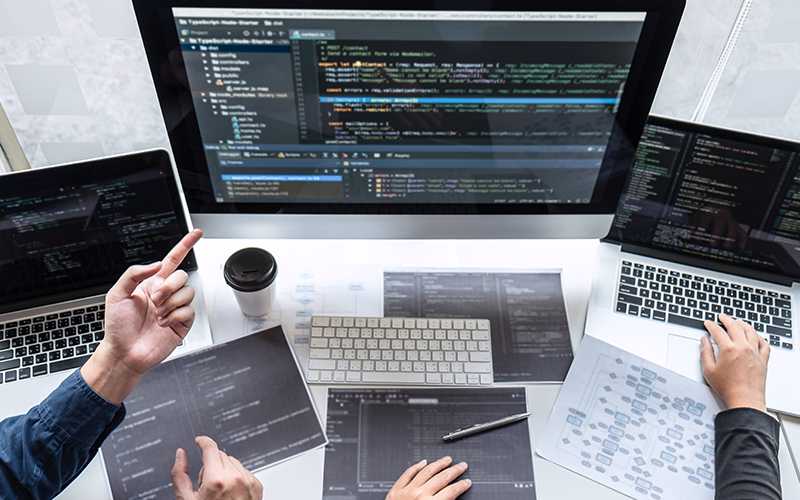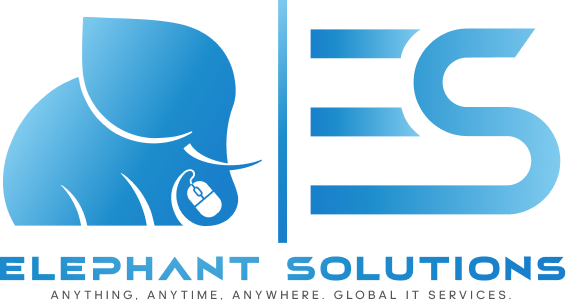How to Learn Programming
Introduction
Programming is very popular today and a large number of people choose to learn to program. The world is becoming more and more digital, and there is a huge need for developers. New jobs are being created with good conditions and high salaries.
However, learning programming is not easy, it requires a lot of work and effort. In the world of programming, many things are important and need to be learned. For that reason, before you even start learning to program, you need to have a plan and you need to understand what programming involves.
Here are some steps and tips that will undoubtedly serve as a basic guide to learning to program.
1. Fundamentals
There are different opinions about which programming language is best for beginners, but it doesn’t matter that much. It is important to assess in which direction you plan to develop your programming career and what you want to be your ultimate goal. This allows you to choose the first programming language or type of programming language more precisely. Whichever programming language you choose, it is important to learn the basics. Once you have mastered the basics, it is easy to switch to another programming language of the same type. Certainly, in the world of programming, there is always something new to learn, and it is also one of the qualities you must have or acquire, a willingness to constantly learn and improve.
The basics of any programming language are the most extensive and require a great deal of commitment to complete understanding. For that reason, a large number of people make the same mistake because they skip the basics or superficially teach them everything to reach the goal more easily. This approach should be avoided because problems arise later due to the lack of some parts from those bases. It’s like starting to put together puzzles without even looking at what the final image should look like, so you try to put some puzzles together by heart. Skipping will not help you in project design or technical job interviews, so it is very important to know the basics of programming.

2. Documentation
The Internet is full of information about any field, so, of course, it can be helpful in your programming learning process.
What is important to know right from the start is that a large number of technologies have written official supporting documentation that explains everything that this technology encompasses. Depending on the technology, some documentation may be better and some may be worse. If you want to learn a concept and have not understood it using a source from the Internet, you can always look for another that may be clearer to you. Some technologies may not have official documentation or the documentation may be poorly written, so you will need to look for a suitable area on another internet source.
The ability to quickly find quality information means a lot and helps in the process of learning programming. If you opt for a programming language, be sure to surround yourself with all the additional quality sources of information related to the programming language you have chosen.
3. Ask questions
To learn, you need to ask questions and ask for help. The sooner you understand this, the easier it will be for you and you will surely progress faster.
First, try to solve the problem yourself several times, and when you have no idea, ask someone to help you. If you don’t have a friend who can help you, you can always ask a question and ask for help on a forum like StackOverflow. It would be great if you could find a mentor because that would make the learning process much easier for you.
Questions can also help in the learning process by asking yourself a question and trying to find the answer.
4. Build projects
Because programming is complex, it takes much more than reading some professional books, taking notes, and watching tutorials. You need to apply what you have learned concretely. When you read or watch, the usual material seems simpler, but when you start to put it all into practice, it becomes much harder.
When it comes to programming, creating projects is the best way to learn to program. Programming requires continuity in learning and practice, and creating projects includes just that. When you learn something, then you practically apply that knowledge to projects. Regular project work is the best way to determine the material you have learned.
If you are not sure what to choose for your first project, keep in mind that it is best to choose something that interests you, start with something simple, and try to create something that will be useful to you or other people.
Creating projects will not only help you learn and understand programming but also build your portfolio. Whether you are a student, a self-taught person, or a person already working in the profession, your projects remain behind you as a guarantee of your experience, which later increases your chances of employment or advancement to a higher position. A typical example is the GitHub platform.

5. Broaden your knowledge
Reading code is not the same as understanding code. Whenever you have the opportunity to go through a piece of code, instead of reading it, always try to understand how that piece of code works. This approach helps a lot in spreading your knowledge.
Broaden your knowledge by investing in specific courses. Courses are much more useful when you already have some prior knowledge than when you are starting from scratch. Like courses, you can broaden your knowledge by purchasing or borrowing an appropriate professional book. Books usually contain great examples.
To develop logic, you should invest some time in data structures and algorithms. Data structures and algorithms are extremely important areas involved in the job interview process.
If you have completely learned one programming language, you can choose another to learn. Saturation often occurs in programming, and some minor changes can have a positive effect on your daily productivity. Of course, after the first programming language, the second programming language will be much easier for you to master.
6. Consistent practice
Continuity and regular programming are the keys to mastering any programming language. It takes time to understand programming well. Because the more consistently you exercise, the better your chances of mastering programming are.
Try to make the process of learning programming fun. While coming up with an idea for a project, join a programming community, exchange ideas, or register on a programming forum. Start some topics, try to do something different, or explore some modern technology. Find some sites that offer various challenges for developers so you can further practice and strengthen your skills. If you have simply made a project and everything is working properly, try to experiment a bit and improve some segments if possible.
The goal is to make programming a part of your everyday life and to experience it as a game so that you don’t get bored or too tired at some point.

Conclusion
Learning programming is a big challenge, and a large number of people give up, which is completely normal. Some do not have enough will and motivation, some do not have an adequate background, and some simply realize that programming is not for them.
However, if you are determined and create your learning plan well and adhere to all the guidelines we have given you, you will have a great chance of succeeding in this field. You should always keep in mind that all the developers struggled a little in the beginning. You will have super productive days, but also days when you will want to give up more than once.
If we accept all this and understand that it is part of a learning process that simply works that way, it will be easier for us to achieve the continuity in work that we need to master programming. The most important thing is to stay persistent and never give up.
We invite you to follow us on social networks so you can keep up with all our latest projects and news.

